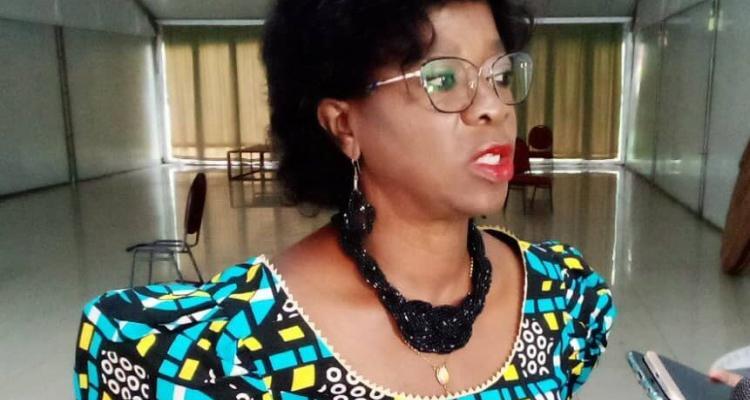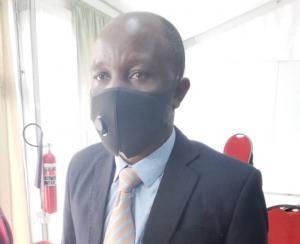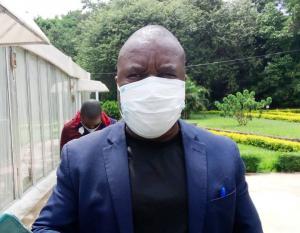
The Government of Malawi through the NGO Board has insisted on amending the NGO Act saying it wants transparency and accountability among the Non-Governmental Organisations.
Speaking during consultation meeting with different stakeholders including NGOs in Lilongwe on Friday, Principal secretary in the Ministry of Gender Community Development and Social Welfare Roselyn Makhumula said Government wants to amend the bill to reflect the current thinking where the government want sustainable development in the country.
“We have observed in the past that most of these NGOs solicit funds in the name of helping and complementing government agenda but they haven’t done so in a way that is transparent and accountable. NGOs work in the communities but developments that are taking place in the communities are not matching the amount of resources that they solicit.
“So government is interested to see that NGOs when they come to Malawi as they are operating in Malawi they should also be accountable. As they also call upon government to be accountable, we are also asking them to be accountable. You know that a lot of donors they give a lot of funds to these NGOs not in the name of just sustaining the NGOs but in the name of developing the communities so that’s the spirit of amendment in the current act the NGO act,” said Makhumula.
Makhumula also noted that there is no political interference in amending the act despite some NGOs claiming there is.
She said that this is the other reason why the process of amending the NGO act has taken so long because there have been more consultations on the same as some NGOs are against the amendment of the NGO act.
“As you know this bill was brought on the table in 2016 to regulate NGOs appropriately and the consultation also started then, but there has been always a problem because the NGOs feel that there is political interference but there isn’t political interference as I have already said.
“They say the act is going to limit the NGO space but I can assure you that it is not going to limit the NGOs space of operation as I have said what we want is the NGOs to cooperate with government so that the sort of programmes that they are implementing in the communities are in line with government development agenda. We cannot continue leaving the NGOs to go out there and solicit funds and come here in Malawi and we can’t point to anything that they are doing,” said Makhumula.

She, however, noted that there are some NGOs that are indeed implementing their programmes according to the development agenda of the country.
In his remarks, Chairperson of Parliamentary committee on Social and Community Affairs Hon. Savel Kafwafwa said the bill is important to Malawians because government wants to make sure there is more accountability in terms of funds that the NGOs receive.
“As parliamentarians we think this bill is important but again as parliamentarians we have to protect our communities so we want to make sure that we bring laws which should protect communities but at the same time to make sure that NGOs have a smooth working environment and at the same time making sure that they are accountable with the money they receive.
“You can see that in our communities we have NGOs which are working there but we don’t know how much they are spending and how much was the budget and later on you just hear that we were in your area and we have spent 10 million but you can’t necessary point on how much the work has done. So I think part of the amendment in this regard is to make sure that we are working together,” said Kafwafwa.

Council for Non-governmental in Malawi (CONGOMA) Executive Director Ronald Mtonga said some of things which are being proposed are not right in terms of independence of NGOs hence the NGOs want more consultations.
“If we don’t take part in such consultations then whatever input come from the consultation we will not accept it.
“On the other hand, the government wants us NGOs to give them the information on where we get our funds how we use them, that also I see it is not right because it depends on how government is going to use that information because there are some governments which we know that when you disclose the source of money they go to the source of money and say don’t fund this NGO because they are not supporting government agenda when in fact government agenda is against the People rights in some cases. So you find an NGO in human rights is not getting funding because government will say it is not meeting our agenda because they are standing for people. So you have to balance the work the NGOs do in terms of safeguarding the will of the people but also freedom act,” said Mtonga.
Among other things in the proposed bill, there is a suggestion to scale up fines and penalties including a K15 million fine for non-compliance and removal on the clause of imprisonment.
The bill is expected to be circulated to the wider stakeholders for further engagement and thereafter it will be submitted to government authorities for further processing before being presented to the National Assembly in the next sitting of Parliament.
The bill was first presented in 2018 and was discarded because of an injunction which restrained Parliament from tabling it.














